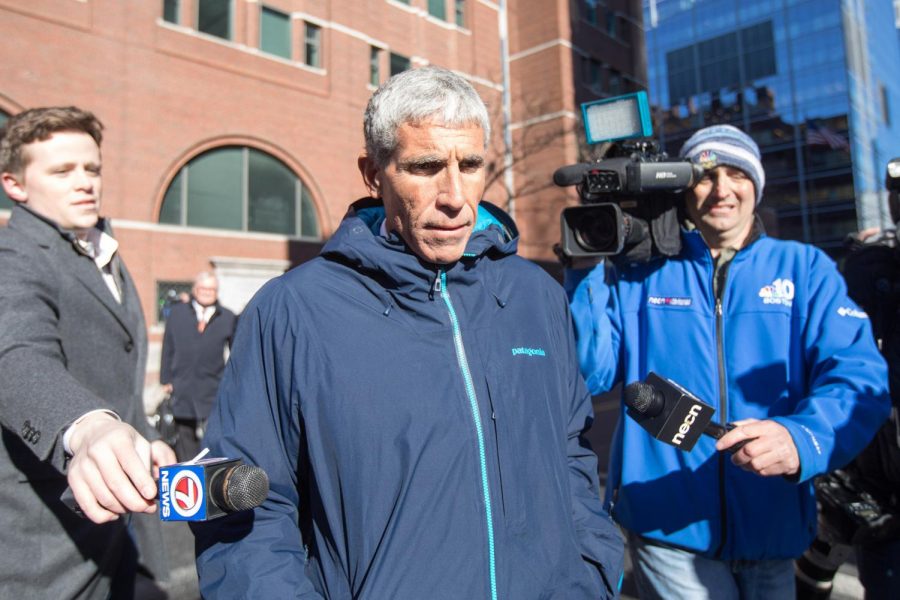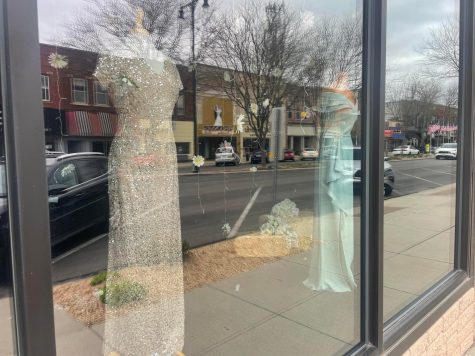Responding to college scandal, California lawmakers propose sweeping reforms
April 2, 2019
SACRAMENTO, Calif. — Reacting to widespread allegations of cheating in the college admissions process, California lawmakers Thursday proposed a sweeping package of bills aimed at closing loopholes that officials said gave the children of wealthy parents a side door into elite universities.
The six measures would bar special admissions without the approval of three college administrators, regulate private admission consultants, audit the University of California admissions process and deny state tax write-offs for donations made by parents as part of the cheating scheme.
Another bill, by Democratic Assemblyman Phil Ting of San Francisco, would prohibit preferential admissions to applicants related to the institution’s donors or alumni. Universities that did not comply would be ineligible to participate in the Cal Grant program, so students who receive Cal Grants would have to use them at another institution.
“This is about fairness and equity,” Ting said. “We must close the side door that enables privileged families to get their children into elite colleges, taking the place of deserving students.”
The bills are in response to the Operation Varsity Blues investigation, in which federal prosecutors have charged 50 people with being part of a scam in which well-connected parents allegedly paid large bribes to buy their sons and daughters entrance to elite universities or high scores on admission exams.
Actresses Felicity Huffman and Lori Loughlin are among the wealthy parents charged with participating in a scheme orchestrated by Newport Beach businessman William “Rick” Singer.
Others facing criminal charges include coaches at the University of Southern California, Stanford, UCLA and other top-tier colleges.
Many of the legislative proposals would primarily affect the University of California and California State University systems, but Ting’s proposal could affect Cal Grant funding at private universities as well.
The legislation proposed Thursday included a measure by Democratic Assemblyman Kevin McCarty of Sacramento that would bar any special admission, also known as “admission by exception,” to a California public college or university unless it had been approved by at least three college administrators, which could include the chancellor or president of the institution.
“For every student admitted through bribery, there was an honest and talented student that was rejected,” McCarty said in a statement. “This legislative package of college admissions reforms will ensure that there are adequate checks and balances to catch fraudsters, but more importantly to protect the sanctity of the admissions process.”
McCarty said he had “complete disgust” over the fraud alleged in this month’s scandal. Some 2 percent of UC students received special admissions, he said.
“If a UC water polo special admit is admitted, we should ensure that they know how to swim and they actually play water polo,” he said.
Students admitted by exception at public universities would be allowed only if they were California residents and eligible for in-state tuition.
UC and Cal State officials said Thursday they are open to considering additional reforms in response to the admissions scandal, but stopped short of endorsing any of the proposed bills.
“We are making every effort to take a critical, hard look at our own practices,” UC officials said in a statement. “We look forward to working with legislators to address their concerns and proposals.”
The UC system said it forbids “legacy admissions.”
Admission by exception is used “sparingly,” the statement said, including for students “with special talent in the arts or athletics arenas who narrowly miss the admission requirements.”
Cal State officials said they are already reviewing policies and practices.
“We are always willing to work with lawmakers on legislation that could impact the university,” said Michael Uhlenkamp, a Cal State spokesman.
The audit proposed Thursday would look at special admissions, including those under athletic scholarships, said Democratic Assemblywoman Tasha Boerner Horvath of Encinitas, who like Ting is a graduate of UC Berkeley.
The allegations, she said, “are fundamentally undermining our public’s trust in our public educational institutions.”
Another bill, by Democratic Assemblyman Evan Low of Campbell, would require college admissions firms like Singer’s to register with the secretary of state’s office and be included in an annual public registry.
“The recent admissions scandal has revealed the utter lack of oversight involved in an industry where bad actors have been able to thrive,” Low said, “This bill will finally put a check on bad actors while still allowing legitimate firms to stay in business under state regulations and guidelines.”
Ting said the scandal also shed light on legal ways that wealthy parents could influence the college admissions process.
He cited the 2018 Survey of College and University Admissions Directors, which found that 42 percent of admissions directors at private institutions said legacy status was a factor in admissions at their institutions, with only 32 percent believing it was an appropriate consideration.
In addition, Ting said 65 percent of high school counselors said their students with legacy status appeared to have much better chances of admission than others applying to competitive colleges.
The issue was deemed so urgent by Ting and other lawmakers that they were using a procedure known as “gut and amend” to introduce bills after the Feb. 22 deadline for new legislation. That involves removing language in previously introduced bills and substituting in proposals that address college admissions.
Democratic Assemblyman Patrick O’Donnell of Long Beach has proposed a bill he says will combat cheating by allowing school districts to offer college admissions tests such as the SAT or ACT during the school day at their high school campuses.
Another measure proposed Thursday by McCarty would examine the possible phasing out of some testing used in admissions decisions. The resolution would request that Cal State trustees and UC regents conduct a study on the effectiveness, usefulness and need for the SAT and the ACT in student admissions for their respective systems.
















